Lacuna Festivals
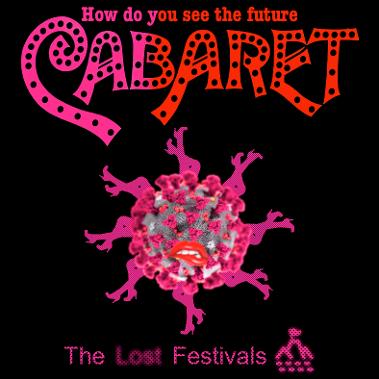
ETHER Blog Post - January 2021
Lacuna Festivals by Sarah-Jane Mason
Lacuna Festivals (we/our) was founded in Lanzarote in 2019 as a festival run by and for practising, contemporary artists. The ethos of the festival is that there is an intrinsic value in art that transcends differences and goes beyond its perceived monetary worth. The principle of equal opportunities for artists regardless of differentials is one our core beliefs and it is this founding principle that ensures encounters with the other are simply part and parcel of the festival experience. In the context of the festival, difference, or otherness, relates to differentials of any kind, whether delineated and defined by systemic or rational principles or arbitrary ideas. Difference is a tag that can be worn proudly, but it can also be a given label that becomes stuck, perhaps to someone who does not self-identify as different.
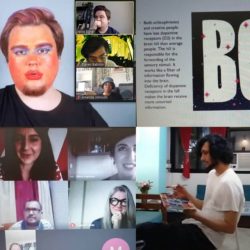
We do not want add to this ‘othering’ of people or spaces and instead take steps to bring artists, audience members and venues together on a level playing field. Of course, we have to acknowledge that it is a challenge to negate prejudices and the allure of capital gain, in both ourselves and in festival participants. We scrutinise our decisions and ensure our actions are transparent to enable questioning and dialogue between ourselves as organisers and also with and between participants. These steps keep us accountable to the festival ethos and safeguard our belief that no one artist, audience member or venue is more or less important than any other.
Our goal is to hold space for everyone without an intrinsic, hierarchical structure to create levels of difference and otherness. Even when split into the arbitrary categories of artist, audience or venue, it is clear that all participants within each category are so very different; yet we expect all festival participants to work within the same parameters: Donations can be requested, but compulsory charges cannot be made; event numbers can be limited, but places must be accessible to all; artworks can be sold, but commissions cannot be taken. Building this culture of equality enables meaningful encounters with difference to occur with a lower possibility of them becoming threatening or hostile. Engaging with difference is something that all parties are doing and therefore becomes the norm.
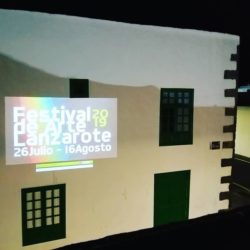
This norm is supported by our unusual application procedure which has only one success criteria; that the submission must respond to the festival theme. The theme is different each year and themes are specifically selected to stimulate dialogue and collaboration amongst participants with different contexts. All artworks that respond to the theme are accepted. This is often self-evident in the artwork, but artists may choose to explain how their work responds to the theme, encouraging artists with unusual approaches or ideas to submit their work.
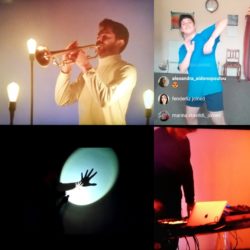
We recruit applicants though an open call that is advertised widely, both physically and digitally, in expected and unexpected places . For example, artists forums and magazines, toy shops, streetwear outlets, cafes and restaurants, community noticeboards and via a range of personal and professional social media platforms. Another important component of our unusual approach is that there are no submission fees, removing a further potential barrier to application and opening access to a wider demographic.
The festival events have developed to encourage and support encounters with difference. This began with the founding festival in 2019 being twinned with the Larroque Arts Festival, France. Engagement between participants from the two festivals was facilitated through Facebook conversations, live web links and simultaneous events. A particularly successful encounter was a live, guided video tour of the inauguration event of each festival. The tours were delivered by participants from each festival and created a space for dialogue between participants, in France and Lanzarote, in response to the submitted artworks.
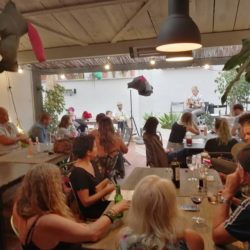
In 2020, the festival events expanded this interactive way of encountering difference and included May We Collaborate, a project where 30 artists from around the world swapped incomplete artworks and finished another artists work, often encountering a different medium or approach than they were familiar with. Participant feedback from May We Collaborate indicated a strong sense of encountering and meaningfully engaging with difference.
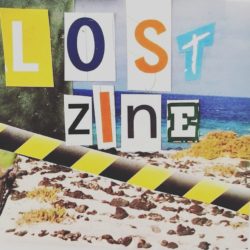 “A collaboration is a very precious chance for getting to know the impetus towards the understanding of art of other artists, their interpretation and their devotion of their metier. And it is a challenge to understand and interpret the other ones masterpiece.”
“A collaboration is a very precious chance for getting to know the impetus towards the understanding of art of other artists, their interpretation and their devotion of their metier. And it is a challenge to understand and interpret the other ones masterpiece.”
“My intention was to preserve the work done by the other artist and connect with it in a complementing way. I spent quite a lot of time looking at it, trying to figure out what emotions it evoked in me and what could have been the original message and artist who created it. I added some visual elements that reflected my interpretation of the artwork as well as resonated with my artistic practice.”
“On receiving this work for collaboration I was taken aback with its accomplished-ness and the man’s loneliness. So this was quite a challenge as I wanted to change the artwork mood. I could either make it even more sad or add something positive. I decided to go with the latter. He is not alone anymore. And I hope they are going to be happy. Thank you for the exciting experience. And my respect to the author.”
Artist participants, May We Collaborate, 2020
The encounter led some artists to question their own practices and develop new paths of working.
“… it did make me question my process and skills a lot. I would not call the whole process uncomfortable, but it wasn't an easy journey. Very challenging, but at the same time bringing exceptional discoveries.”
Artist Participant, May We Collaborate, 2020
Unfortunately, not all participating artists had a positive experience with the May We Collaborate project. This reminded us of the reality of working with others, you put yourself out there and there is a risk. Trust is given and if it is broken it can be hurtful and potentially harmful for encouraging further interactions with difference.
“It was absolutely disappointing. My collaborator never delivered work. He or she should have been taken out of the project. It is a total lack of professionalism if you think you can do whatever, whenever you like to. It will come back to you in the end.”
Artist Participant, May We Collaborate, 2020
This feedback prompted huge reflections for us. As facilitators what role do we have in managing expectations, enforcing promised actions or implementing sanctions? Is it possible to maintain a flat hierarchy within the event and the festival community and also hold the responsibilities of others? How can we further support participants in successfully encountering and working with difference?
Following a callout for artist led events, Tinaninani, a Dutch dance and mime theatre company, were keen to organise and direct a collaborative artwork that considered multiple viewpoints to a single provocation. They launched an open call within the festival community for contributing artists to Homeland: Hero, The hallucinating Dream of a working class man. Twenty artists from sixteen countries responded to the call and worked collaboratively across the internet without ever having met. Together they co-created a moving and intriguing piece which can be viewed here: https://www.youtube.com/watch?v=13qxsal4lN8
Feedback from this artist initiated, led, directed and co-created piece commented on the power of collaborative working in the dismantling of otherness and the sense of togetherness and community developed through the process.
“Once upon a time monument of others was constructed. Or invented. Or even created.”
“And the work with others had a very special effect on me. Suddenly I was seen by others. It gave this will of doing more, it gave confidence in my art- it is so different from the situation when I as an artist work alone . In the dark sometimes.* even if the dialog was short - the good feeling, the respect, the curiosity for others, the joy, the feeling of miracles-is still there.”
“And just to remind: all artists who participated in the project have never met each other before. And we became friends and the WhatsApp group still exists and we still have communication.”
“In 2021 we, [TiNaNiNaNi], are intending to work on a project on location In Netherlands and Turkey where we start working together with a dancer and musician from Turkey who participated in the Lacuna working together project. And.... we hope that the Lacuna festival will happen at 2021: we intend to do this project over there and invite all participating artists of the "Homeland: Hero, The hallucinating Dream of a working class man" project, so we can meet each other in real.”
Artist Participants, Homeland: Hero, The Hallucinating Dream of a Working Class Man, 2020
In addition we ran a 10 Day Challenge, where we encouraged anyone and everyone to respond to ten creative prompts given on ten consecutive days. This brought together participants, who self-identify both as artists and non-artists, in creating work that was exhibited as part of the festival. Feedback from this largely focused on the motivation it provided.
“I personally loved being part of this project and sharing my art through your platform. At a time when it is necessary to spread art, you helped me to keep moving. So for me it was all positive, and I thank you for the space.”
Artist Participant, 10 Day Challenge, 2020
To see more images from May We Collaborate and the 10 Day Challenge please visit our Flickr galleries: https://www.flickr.com/photos/lacunafestivals/albums
The festival venues are also chosen to encourage and support encounters with difference. We choose spaces that are not usually used for performances or exhibitions in addition to more traditional locations. This means that some of our audience actively choose to come and see art and some do not, resulting in chance encounters with contemporary artwork positioned in unexpected places. For example, we placed a large 3D piece in the middle of the main route through a large sports campus. This forced those using the centre to walk around the piece, encouraging interaction with the artwork but also with those around them inspiring interesting conversations about the artwork, its location and the purpose of the festival.
Venues for the 2020 festival were totally different due to the impact of the COVID-19 pandemic which led us to deliver the festival 100% digitally. Suddenly a spare room became a performance space, the living room was the perfect spot for a life drawing workshop and our kitchen table hosted international, round table discussions. This abrupt change to what is expected, and accepted, helped us to realise our vision for the festival; questioning accepted norms, opening up dialogue between participants, providing facilitated opportunities for international collaboration and holding space for these conversations and collaborations to happen.
The 2021 festivals will be blended (physical and digital), not only as a contingency measure against the ongoing pandemic, but, more importantly, to further develop our use of venues as a way of participants encountering the other and engaging with difference. We hope to widen participation within Lanzarote itself by using physical venues in which more diverse participants can feel comfortable. Perhaps using town centre streets, empty shops, abandoned buildings, the beach or café terraces. Most events will be delivered online which will enable us to build our international participation by providing global opportunities for meaningful interactions such as dialogue, creation and collaboration.
This focus on both local and international participation is deliberate. The intention is to create an intertwined network of global participants with prospects for translocal relations. This will push the possibilities of the festival even further, from where we are now, facilitating encounters that enable participants to connect with the other whilst encountering, questioning and dissecting difference, to translocal relations shaped by creative exchange that can conceivably instigate change in multiple people and places.
To see the festival archives or find out more about the 2021 festival please visit our website at: https://www.lacunafestivals.com/
You can also follow us on Facebook, Instagram, and Twitter @LacunaFestivals and find us on YouTube.
